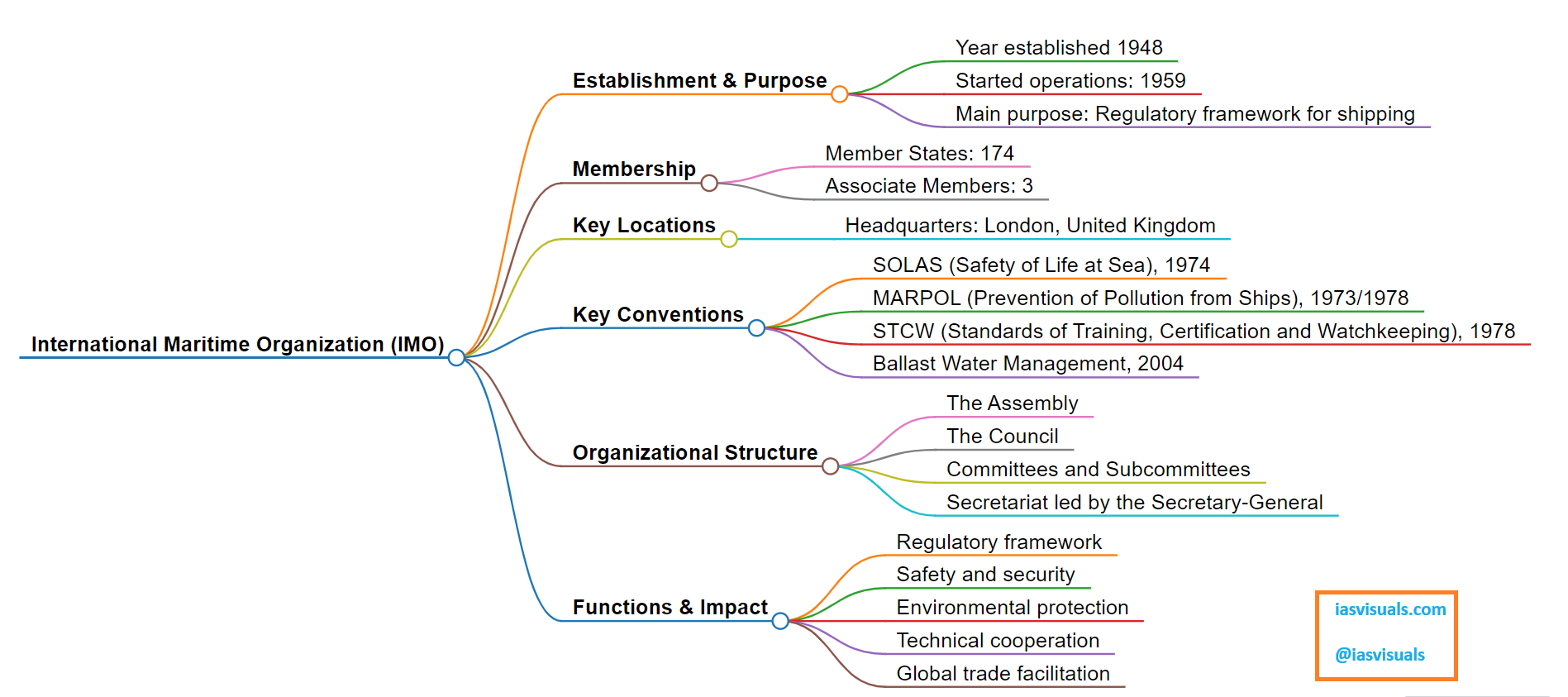The International Maritime Organization (IMO) is a specialized agency of the United Nations responsible for regulating shipping. Here are key points about the IMO:
1. Establishment:
The IMO was established in Geneva in 1948 and started its operations in 1959.
2. Purpose:
Its main purpose is to develop and maintain a comprehensive regulatory framework for shipping, including safety, environmental concerns, legal matters, technical co-operation, maritime security, and the efficiency of shipping.
3. Membership:
The organization has 174 Member States and three Associate Members, making it a truly global institution.
4. Headquarters:
The IMO’s headquarters are located in London, United Kingdom.
5. Key Conventions:
The IMO is responsible for several important international maritime conventions, such as:
– The International Convention for the Safety of Life at Sea (SOLAS), 1974.
– The International Convention for the Prevention of Pollution from Ships (MARPOL), 1973/1978.
– The International Convention on Standards of Training, Certification and Watchkeeping for Seafarers (STCW), 1978.
– The International Convention for the Control and Management of Ships’ Ballast Water and Sediments, 2004.
6. Committees and Subcommittees:
The IMO works through a series of committees and subcommittees that focus on specific aspects of maritime safety, navigation, environmental impact, legal matters, technical cooperation, and maritime security.
7. The Assembly:
The Assembly, which meets every two years, is the highest governing body of the IMO. It is responsible for approving the work program, budget, and determining financial arrangements of the organization.
8. The Council:
Between sessions of the Assembly, the Council acts as the governing body. It is responsible for supervising the work of the Organization.
9. Secretariat:
The IMO’s work is carried out by a Secretariat consisting of around 300 international staff members led by the Secretary-General.
10. Global Impact:
Through its regulatory framework, the IMO promotes the safety and security of shipping and the prevention of marine and atmospheric pollution by ships worldwide.
11. Technical Cooperation:
The IMO also focuses on technical assistance and capacity building for maritime safety and security, particularly for developing countries.
12. Continuous Evolution:
The organization continuously updates its regulatory framework to address new challenges in maritime safety, security, and environmental protection.
The IMO plays a critical role in global trade and environmental protection by ensuring that shipping remains safe, secure, efficient, and environmentally friendly.


Wow, wonderful weblog structure! How long have you ever been blogging for?
you make blogging glance easy. The entire glance of your site
is wonderful, let alone the content material!